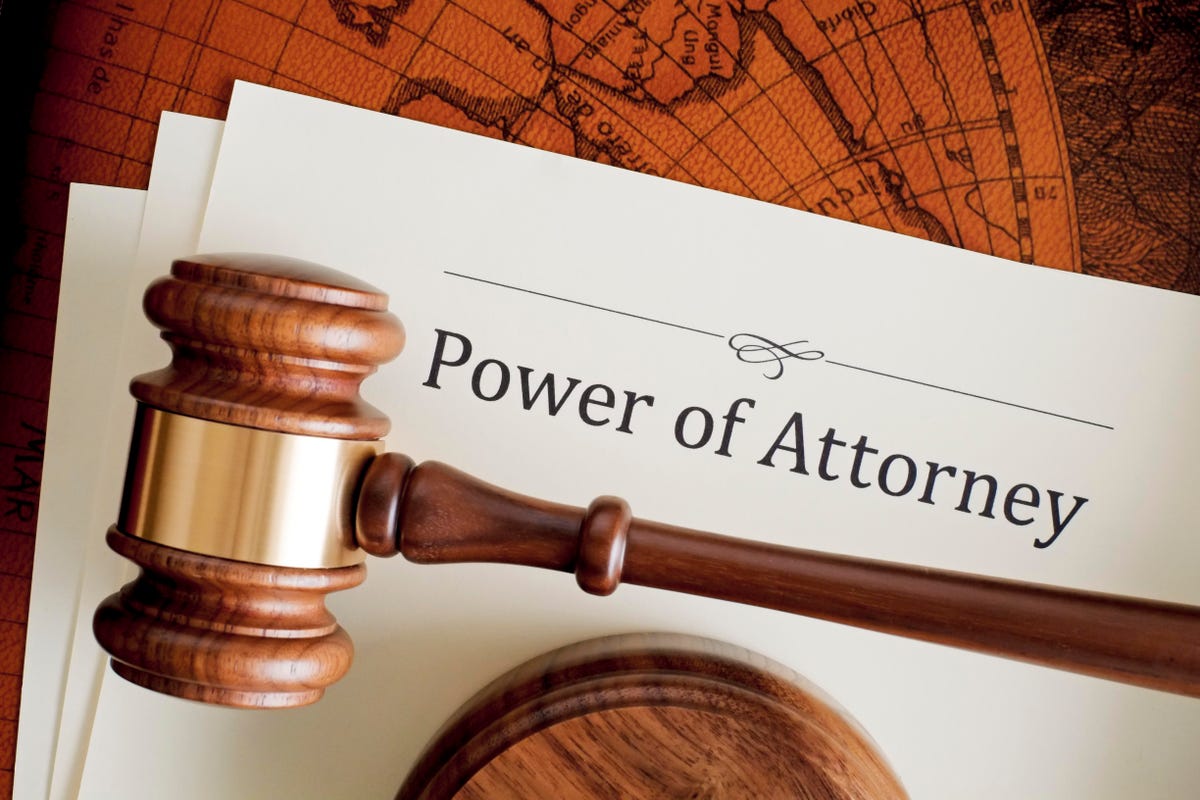What Is AA Power Of Attorney, What Role Does It Play, And How Do I Create One
Jan 06, 2024 By Triston Martin
A power of attorney is a legal document that grants authority to another person to take action on another's behalf. Therefore, a power of attorney allows the attorney-in-fact to represent the principal in legal matters.
The scope of the agent's decision-making authority over the principal's property, finances, investments, and healthcare is negotiable. A power of attorney (POA) can grant broad or narrow authority to the appointed representative, depending on the nature of the document.
Process of a Power of Attorney

The agent or attorney-in-fact and the principal are both parties to a power of attorney. It is used when a principal is too ill or unable to sign legal papers themselves, either temporarily or permanently.
The principal should be careful when selecting a POA to act on their behalf. 1 You may consult a lawyer online to get the necessary paperwork. The papers need to be signed by both parties. It is customary to have a third person present as a witness.
As long as the principal's mental capacity is unimpaired, most powers of attorney will allow the agent to act on behalf of the principal in all financial and property situations. If the principal loses legal capacity, the arrangement will terminate automatically.
The Various Forms of Attorney-in-fact
Financial and healthcare powers of attorney are the two most common kinds of POAs. We highlight the various types of financial POAs and discuss some key distinctions.
Health Care Power of Attorney
If the principal wants the agent to have authority over medical choices, they can give such authority by signing a health care power of attorney. This form, also known as a health care proxy, expresses the principal's intent to grant the agent power of attorney over medical decisions in the case of an emergency.
The health care power of attorney has the legal responsibility to make choices about the principal's health care on their behalf. So, it takes effect when the principal can no longer make their own decisions about their health care.
Financial Power of Attorney
To the degree that the agreement specifies the scope of the agent's responsibilities, the agent is obligated to carry out the principal's instructions. The holder of a financial POA has broad authority over the account holder's financial affairs, including the authority to access the account, make withdrawals, write cheques, and modify the account holder's beneficiary designations.
How to Appoint a Power of Attorney

A POA confers substantial authority and obligation, much like a house or automobile deed. In the case of a health care POA, this is a question of life and death.
Furthermore, if your durable power of attorney is misused or exploited, you may find yourself in a dire financial situation or perhaps bankrupt. This means you must be very selective when selecting your agent if you want your demands to be fully respected.
It is crucial to appoint a reliable and competent individual as your agent. Any mistakes made by your agent will have the same legal weight as if you had made them yourself. Even worse, there's the potential for self-dealing, depending on the scope of the authority you provide.
Appointing Minor Children as Agents
In many cases, parents appoint their adult offspring as their POA agents. When the POA is intended to relieve an elderly parent of the burden of managing the details of financial and investment affairs or to provide management for an elderly parent's affairs should the parent become incapacitated, naming a child as the agent has some advantages over naming a spouse as the agent because of the child's relative youth.
The aim of a POA is defeated if the spouse listed as the agent is close in age to the individual initiating the POA and subsequently develops the same infirmities that prompted the POA's establishment.
Special Considerations
Having a power of attorney in place assures that someone will manage your finances in the event of incapacitation, which is just one of many benefits of doing so. Ideally, you'd pick someone who is reliable and trustworthy, such as a member of your family, a friend you know and trust, or a specialist in your field.
Keep in mind that if you sign a power of attorney that gives your agent wide-ranging authority, it's essentially like giving that person a blank check, so it's important to make an informed decision and familiarize yourself with the relevant laws.
-
 Know-how Dec 03, 2023
Know-how Dec 03, 2023Buy Now, Pay Later – Everything that You Need to Know
If you are also curious to know what BNPL is and how it works, then this article is everything that you need.
-
 Banking Feb 25, 2024
Banking Feb 25, 2024Debt Snowball Vs Debt Avalanche: An Overview
The debt snowball vs avalanche techniques are two of the most common and effective ways to pay off your debt.
-
 Investment Jan 06, 2024
Investment Jan 06, 2024What Is AA Power Of Attorney, What Role Does It Play, And How Do I Create One
The legal instrument known as a "power of attorney" (POA) designates one person as another's agent to carry out specified legal tasks. Consequently, an attorney-in-fact can act on their principal's behalf in court with a power of attorney. The principal and agent can agree on the agent's decision-making authority over the principal's property, money, investments, and medical care.
-
 Know-how Jan 05, 2024
Know-how Jan 05, 2024All You Need to Know About: What is the S and P/TSX Composite Index?
A composite index is a group of stocks that can measure the overall performance of a market or sector over time. These indexes are useful for tracking how prices change across a whole market. They can also measure your portfolio. Most of the time, the actual objective of a well-balanced portfolio is to do better than the main composite indexes. But is the S and P/TSX Index to measure how well your portfolio is doing?
